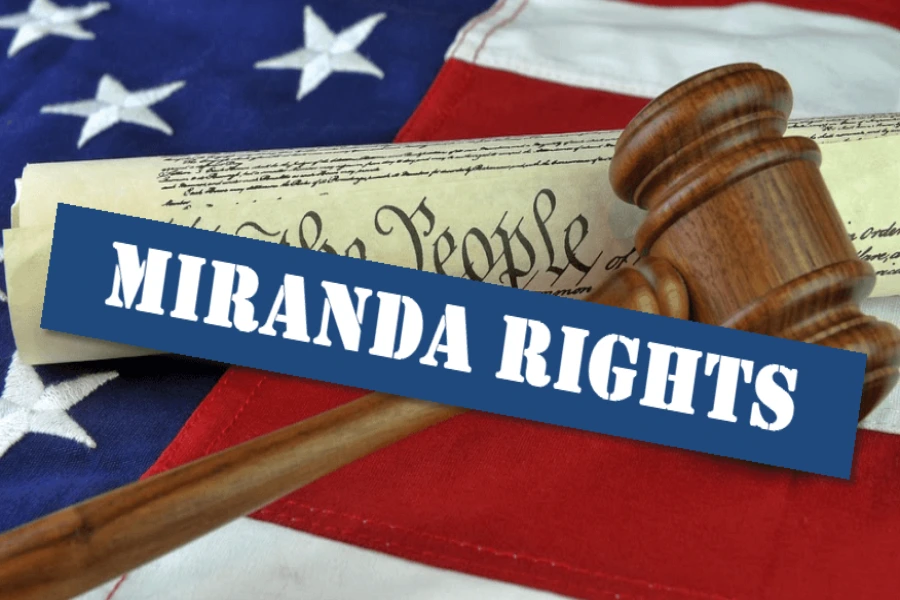When someone is arrested, many people expect to hear the familiar phrase from TV dramas: “You have the right to remain silent…” But is this always required in real life? The short answer: not necessarily. Let’s break down what Miranda rights are, when they must be read, and what happens if the police don’t read them.

What Are Miranda Rights?
Miranda rights are a legal safeguard designed to protect individuals against self-incrimination under the Fifth Amendment and ensure the right to counsel under the Sixth Amendment. These rights come from the landmark 1966 U.S. Supreme Court case Miranda v. Arizona, which ruled that suspects must be informed of specific rights before custodial interrogation.
The standard Miranda warning includes:
- You have the right to remain silent.
- Anything you say can be used against you in a court of law.
- You have the right to an attorney.
- If you cannot afford an attorney, one will be appointed for you.
When Are Police Required to Read Miranda Rights?
Police are only required to read you your Miranda rights when:
- You are in custody (not free to leave), and
- They want to interrogate you (ask you questions to elicit incriminating responses).
This is legally referred to as a custodial interrogation. If either of these two conditions is not met, the Miranda warning is not legally required.
Situations Where Miranda Warnings Are Not Required
Many people wrongly assume Miranda rights must always be read during an arrest. However, here are situations where they’re not legally required:
- During arrest but before questioning: If you’re arrested but not questioned, no warning is necessary.
- Questioning without arrest: Police may ask questions in a non-custodial setting (e.g., a traffic stop or street conversation) without giving a Miranda warning.
- Spontaneous statements: If you volunteer information without being asked, your statement may still be admissible.
- Public safety exception: In dangerous situations (e.g., locating a hidden weapon), police can question without issuing Miranda warnings.
What Happens If Police Don’t Read Your Miranda Rights?
If the police fail to read your Miranda rights before a custodial interrogation, here’s what typically happens:
- Your statements may be excluded from trial. The defense can file a motion to suppress any confession or statement made in violation of Miranda.
- Charges are NOT automatically dismissed. A Miranda violation doesn’t invalidate an arrest or make the case disappear.
However, there are exceptions:
- Un-Mirandized statements might be used to challenge your credibility during trial.
- Evidence discovered from such a statement might still be admissible.
How to Invoke Your Miranda Rights
To protect yourself, it’s crucial to clearly state that you wish to invoke your rights. Here are effective ways to do so:
- “I choose to remain silent.”
- “I want to speak to a lawyer.”
- “I will not answer questions without an attorney present.”
Ambiguous statements like “Maybe I need a lawyer” are not enough. Be direct and unequivocal.
Do Minors Have Miranda Rights?
Yes. Juveniles are also protected under Miranda, though courts may consider their age and understanding when evaluating whether a waiver of rights was knowing and voluntary.
Conclusion
While TV shows might dramatize the reading of Miranda rights, in reality, they only apply in specific situations. Knowing when police must read you your rights — and how to assert them — is key to protecting yourself during any legal encounter.
If you believe your rights were violated, consult a criminal defense attorney immediately. They can evaluate your case and determine the impact of any potential Miranda violation.
If you need further guidance or legal advice, feel free to contact us at:
lawvisionary@gmail.com
FAQ
Q: Can police question me without reading Miranda rights?
A: Yes, if you’re not in custody or if they’re not interrogating you.
Q: Are my charges dropped if Miranda wasn’t read?
A: No, but your statements during interrogation might be excluded.
Q: Can I invoke my rights after answering questions?
A: Yes. You can assert your rights at any point during questioning.
Q: Do I have to talk to police if I’m not arrested?
A: No. You’re not legally obligated to answer police questions unless formally detained.
Q: Can I waive my Miranda rights?
A: Yes. If you knowingly and voluntarily answer questions after being informed, you’ve waived them.

